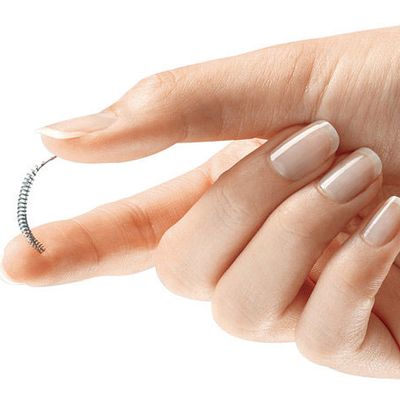
Tomorrow, the U.S. Food and Drug Administration will hold a public meeting about the safety and effectiveness of Essure, the only permanent birth-control device approved by the FDA for use in women ages 21 to 45. Essure is a nickel-titanium alloy coil that’s inserted through the vagina into both fallopian tubes and causes overgrowth that permanently blocks them, preventing fertilization. Women can get Essure during an office visit and it’s marketed as a quick procedure with minimal recovery time, though some women may experience short-term side effects following insertion. Yet since the device became available in 2002, the FDA has received about 5,000 complaints from women with the device including chronic pain, heavy or irregular periods, headaches, fatigue, allergic reactions, and weight gain. Pharmaceutical company Bayer AG says about 750,000 units have been sold, mostly in the United States.
Meanwhile, some experts say it’s not as effective at preventing pregnancy as advertised: A 2014 study in the journal Contraception estimated that up to 9.6 percent of women sterilized with Essure could become pregnant within ten years, versus 2.4 to 4 percent of women who got their tubes tied laparoscopically (a.k.a. tubal ligation). Since it takes time for Essure to block the fallopian tubes, women are told not to rely on the device for birth control until confirmed by an X-ray three months later (though it may take longer for some women). After that, it’s supposed to be more than 99 percent effective. No birth-control method is infallible — not even sterilization — but if one permanent option could be less effective than another, that’s worth knowing.
The advisory panel will be asked to review existing research on Essure and discuss possible prescribing restrictions and determine whether additional studies should be conducted with control groups of women who don’t have the device. That’s the main problem right now — the FDA can’t be sure whether women are experiencing these side effects as a result of Essure alone. The FDA will not ask the panel whether it should be pulled from the market, however.




